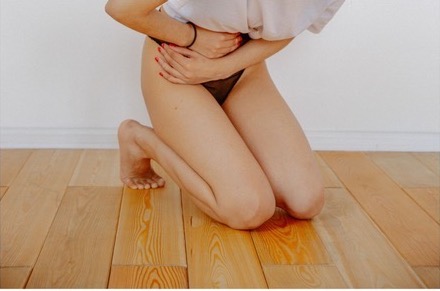Where does pelvic pain come from?
Pelvic pain and dysfunction after having a baby is complex and can stem from any tissue that resides in that area. There are numerous tissues in the pelvic region that can cause pain. This includes: the organs (bowel, bladder, uterus, ovaries, cervix, vagina), the mesentery (the attachments from the bowel to the body wall), the peritoneum, the ligamentous attachments of the organs (from the uterus, ovaries, bladder), the pelvic fascia, the pelvic floor muscles, the hip, abdominal and lumbar musculature, the bony structures (hips/pelvis/lumbars), the blood vessels and the nerves.
What causes it? And what does it mean?
Pain can be caused by inflammation, tension, lack of oxygen and nutrients, poor drainage or congestion, excessive contraction and an energetic depletion in the tissues. And this in turn can be caused by toxicity, infection, inflammation or ischaemia. Pain may stem from multiple tissues and is modulated and interpreted by the central nervous system (the brain and spinal cord). Our emotions and memory have a big effect on how we interpret pain; it is affected by the state of our autonomic nervous system, how much stress we are under, our hormonal and immune systems. Yes, it’s complex, but at the same time quite simple. Pain and discomfort are types of information, telling us that something is out of balance on some level.
Looking at pain holistically
Taking an holistic perspective to our experience of pelvic discomfort or pain can give us an opportunity to step back and see things more clearly. Commonly, women are given the message after delivery that what they are experiencing is ‘normal.’ And the issue with this is that we are suggesting that women ignore their symptoms. As I already mentioned in part 1, it is important that there is nothing underlying going on, like an untreated infection (if you do suddenly develop acute pelvic pain please get this checked out with your provider as soon as possible). But what is ‘common’ is not the same as saying ‘normal’.
Do you have a support system in place?
Finding the right support and help in the postpartum period is going to make a huge difference to you – firstly there’s a good chance that many of the symptoms you are feeling currently can be resolved and secondly you are helping optimise your future health for future pregnancies, deliveries and the ageing process. One of the most important things I have learned over the years is that an overall depletion in your energy reserves will have a massive effect on your recovery; learning how to build your reserves at a time when you are giving so much is key. A pattern I see regularly in women is that they find it difficult to ask for help and support. We’ve often grown up believing that this is a sign of weakness – that we have to prove to the world that we can do it all when the truth is that we can’t, nor should we. As humans, we were originally tribal and children would have had several women and men looking out for them. We now have to build our own support systems – I would recommend spending a few minutes writing down your own web of support, as it can be helpful to reflect on the support you have in different areas of your life.
What’s next? Guiding you through your recovery
Each week I’m going to be providing information to arm you with knowledge and tips for ways forward to help with your recovery.
Here’s an outline of some of the areas we’ll be covering:
- Scar tissue from episiotomy and tears
- Scar tissue from C-section
- The imbalanced pelvic floor
- The effect of sugar on your recovery
- Preventing Prolapse
- Pelvic bone pain and imbalance
- Emotional blocks
- Sleep deprivation
- Hormonal imbalance
- Web of support
- Postpartum non-food based nutrition
I am going to go into detail about each of these topics individually so that you can learn how these things might be affecting your recovery and what you can do to help yourself. And as the weeks go by, I’m sure I will be inspired to add to this list.
Good quality education and support for postpartum women has been sorely lacking and I wish I’d had someone to guide me through my healing process after having my children. We have lost the tribal way of living and with it the wise woman knowledge that was passed down from generation to generation. Through my personal and professional journey in women’s health, I have gained wisdom that hopefully will be of use to you on your healing journey. Prevention rather than cure every time. If you are suffering in your pelvis and know in your heart of hearts that your pelvis just doesn’t feel right after having had your baby, then now is the time to act. I’d love to hear from you and be part of your healing journey.
Please subscribe to my newsletter using the ‘Keep up to date’ form below, if you would like to get more news on women’s health, future blogs, workshops and programs.
Rebecca x


